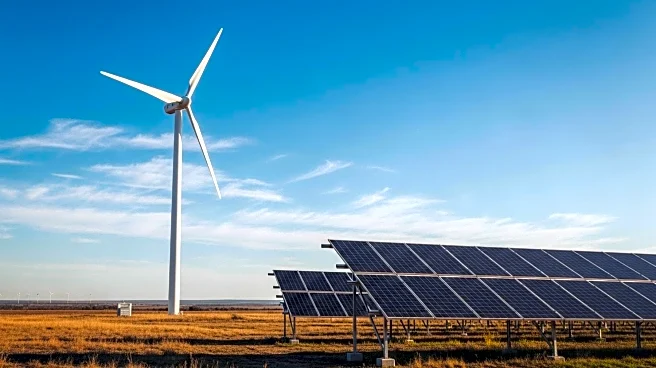What is the story about?
What's Happening?
ENGIE, a global energy firm, has partnered with Prometheus Hyperscale, a data center startup, to leverage Texas's renewable energy resources. This collaboration aims to co-locate data centers at ENGIE's renewable energy and battery storage sites along the I-35 corridor in Texas. The agreement includes deploying high-efficiency, liquid-cooled data center infrastructure alongside ENGIE's assets, with the first projects expected to be operational by 2026. This partnership is part of ENGIE's broader strategy to expand its renewable energy portfolio, which includes a recent 2.4-gigawatt battery storage finance deal with CBRE.
Why It's Important?
The partnership between ENGIE and Prometheus Hyperscale highlights the growing importance of renewable energy in powering data centers, which are significant energy consumers. By integrating renewable energy sources, the collaboration aims to reduce carbon emissions and enhance energy efficiency. This move is crucial as Texas continues to lead in solar capacity, with projections to become the top state for solar additions. The partnership also reflects a shift towards sustainable energy solutions in the tech industry, potentially influencing other sectors to adopt similar practices.
What's Next?
The first co-location projects are expected to be operational by 2026, with additional sites planned for 2027. Prometheus also plans to incorporate natural gas with carbon capture as a backup power solution, indicating a balanced approach to energy sourcing. The partnership may inspire further collaborations between energy firms and tech companies, promoting the use of renewable energy in data centers across the U.S.
Beyond the Headlines
This collaboration could set a precedent for integrating renewable energy with data center operations, potentially influencing regulatory policies and encouraging investment in clean energy technologies. The partnership also underscores the role of innovative energy solutions in addressing climate change and meeting growing energy demands.















